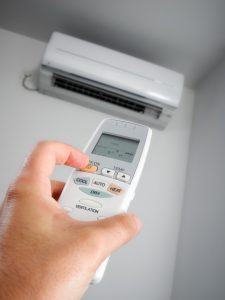Staying comfortable year-round is important, but so is keeping your energy bills under control. Ductless mini-split systems are gaining traction as a compelling alternative to traditional central air conditioning and heating systems. But what exactly makes them so efficient? The key lies in their name: ducts.
Conventional systems rely on a network of ducts to distribute conditioned air throughout your home. Unfortunately, these ducts can be a major source of energy loss. But a ductless installation in Maumee, OH doesn’t lose as much energy as conventional systems.
The Hidden Energy Drain: Leaky Ducts
Traditional ductwork is often hidden away in attics, crawlspaces, and basements. Out of sight, out of mind, right? Unfortunately, this also means that leaks and inefficiencies can go unnoticed for years. The Department of Energy estimates that duct systems can lose up to 30% of conditioned air. Imagine spending money to cool or heat your home, only to have a significant portion of that cool or warm air vanish before it even reaches the rooms you use the most.
Ductless Systems: Precision Comfort, Targeted Efficiency
Ductless mini-split systems eliminate ducts altogether. They consist of two main components: an outdoor compressor unit and one or more indoor air handling units strategically placed in the rooms you want to condition. This targeted approach means less energy is wasted. There’s no conditioned air leaking out of hidden ducts, and you only cool or heat the rooms you’re actually using.
Here’s a breakdown of how ductless mini-split systems achieve superior efficiency:
- Reduced Energy Loss: By eliminating ducts, ductless systems eliminate the energy loss that occurs through leaks, tears, and poorly insulated ductwork.
- Zone Control: Unlike a central system that cools or heats your entire home at once, ductless mini-splits allow you to create zones of comfort. Want your bedroom cool in the summer but the rest of the house comfortable? No problem. Zone control ensures you’re only using energy where you need it.
- Advanced Inverter Technology: Many ductless mini-split systems use inverter technology. Inverters act like a car’s cruise control for temperature regulation. Instead of constantly turning on and off, the inverter adjusts the compressor speed to efficiently maintain the desired temperature. This reduces energy consumption and minimizes temperature fluctuations.
- High SEER Ratings: SEER stands for Seasonal Energy Efficiency Ratio. The higher the SEER rating, the more efficient the system. Ductless mini-split systems often boast SEER ratings above 20, significantly exceeding the minimum federal standards.
Ductless vs. Ducted Heat Pumps: Efficiency Throughout the Year
Heat pumps are a popular choice for year-round comfort, offering both heating and cooling capabilities. However, even ducted heat pumps can suffer from duct-related energy losses. Ductless mini-split heat pumps deliver the same heating and cooling functionality with the added benefit of eliminating ductwork inefficiencies.
Beyond Efficiency: Additional Benefits of Ductless Mini-splits
While energy efficiency is a major selling point, ductless mini-split systems offer other advantages:
- Easy Installation: Ductless systems require minimal installation compared to traditional systems. There’s no need for extensive ductwork installation or modification.
- Flexible Placement: Indoor air handling units can be mounted on walls or discreetly placed high on ceilings. They come in a variety of styles to complement your décor.
- Quiet Operation: Ductless mini-split systems are known for quiet operation, both indoors and outdoors.
- Improved Air Quality: Some ductless systems offer built-in air filtration, helping to remove dust, allergens, and other airborne irritants.
Contact your comfort specialists at AW Heating & Cooling today!

